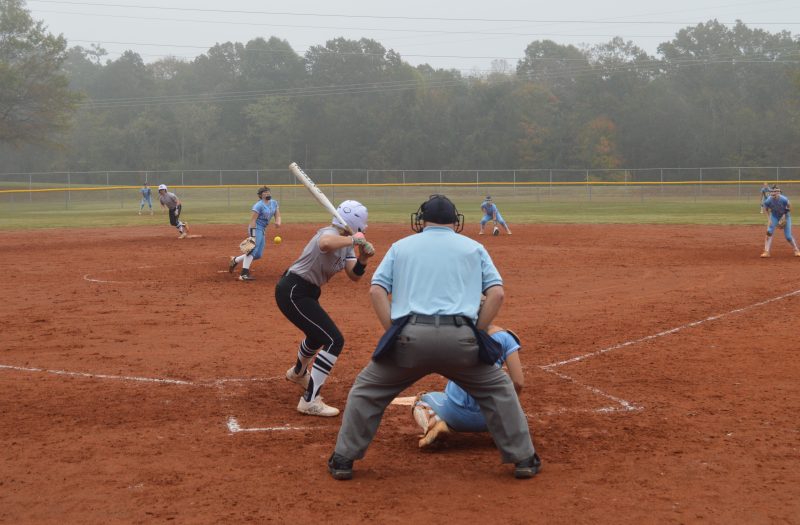Figure Out Your Feels: Anxiety v. Excitement
Let's play a little game for a second. Ever heard of "Would You Rather?" I'm going to give you two options, and you have to make a choice (you can't say "neither"). When you make your choice, do a quick self-scan and take note of any feelings or physical responses you may have.
Choice 1: Would you rather hold a snake or hold a big spider?
Choice 2: Would you rather give a speech at your school's graduation ceremony or throw the first pitch out at a Savannah Bananas game?
When you thought through these options, did you notice anything change for you (thoughts? emotions? physical reactions?)? If you look at each choice, do you think you were excited about any options, or did any of the options cause you to feel anxious?
Now let me ask you this: Do you think you can tell the difference between being excited versus anxious? You may be wondering, why does this matter? Let's dig into that a little more.
Anxiety Or Excitement? Your Body's Response
You all know the feeling. The feeling of dread. Your heart rate speeds up, you start breathing more quickly, you may feel a rush of adrenaline, you may feel like you can't sit still, or you get butterflies.
You may get sweaty, you may be scared to perform the task. You start thinking negative thoughts about yourself and/or the situation, you may start to worry and doubt yourself, you may have the urge to quit or get away from the situation, or you may freeze up and feel like you can't make a decision or move.
What you're feeling is called anxiety. Anxiety and your body's responses are your brain's way of protecting you primarily in life-threatening or dangerous situations (Kerahrodi & Michal, 2020). This is a defense mechanism, but not one you always need. Anxiety can happen in sports when you are not comfortable performing a skill within a given situation. You may feel like you're not prepared, you may not want to fail in the moment for various reasons, or you may think you will get physically hurt in that situation.
Now let's think about an alternative emotion. This time, you have thoughts that you're looking forward to performing, you are happy, and you want to feel the rush of success. Instead of wanting to avoid the situation, you can't wait to get into the situation. This feeling is excitement.
What did you notice about the two descriptions of anxiety and excitement? You got it! The way your body responds to feeling anxiety and excitement is similar. So, how do we know the difference? Our bodies will respond similarly to the two emotions, and we know which one we're feeling based on how we perceive the situation (Veny & Kennard, 2018). If we're experiencing anxiety, we may perceive the situation as negative or threatening to us in some way. If we're experiencing excitement, we may perceive the situation as enjoyable, challenging, or fun (Brooks, 2014).
What To Do With Anxiety
What do you do if you're thinking about a game, and your body feels what we've mentioned? That depends. Do you know if it's excitement or anxiety?
Learn to recognize your body's unique responses to both excitement and anxiety. Once you know what will happen to you physically, you can use your body's signals to help you make the next decision. The next time you feel your physical reactions, pause and take note of the thoughts you're having about the situation you're in. Are you having negative, stressful thoughts? Are you wanting to avoid the situation or quit? If you answered yes, then you are experiencing anxiety.
At this point, ask yourself, out loud if you can, "Is my life in danger?" Most likely, you will respond with "No!" You are letting your brain know there is not a life-threatening event occurring, and you may notice your body's responses and thoughts easing up.
Next, ask yourself, "What about this situation am I afraid of?" Identify what is happening that is making you hesitate, feel uncomfortable, or scared. This isn't always an easy question because you may not want to admit what you're nervous about. Work through this discomfort. Say it out loud or admit it to yourself.
For example, "I'm afraid I will let my team down if I don't get a hit." Once you get that out into the open, some of that anxiety will ease. Name your fear and claim it. Know that it is natural and normal to have these fears and thoughts. Now, put your focus on seeing the situation as an opportunity. Finally, tell yourself (out loud) that you are excited about that situation. Your body is already physically responding, so tell yourself this is excitement you're feeling. By telling yourself out loud that you're excited, you are more likely to flip the anxiety to actual excitement and funnel that energy productively into your performance (Brooks, 2014).
References
Brooks, A. W. (2014). Get excited: reappraising pre-performance anxiety as excitement. Journal of Experimental Psychology: General, 143(3), 1144.
Kerahrodi, J. G., & Michal, M. (2020). The fear-defense system, emotions, and oxidative stress. Redox biology, 37, 101588.
Veny, M. & Kennard, J. (2018, October 29). Are anxiety and excitement the same? Health Central.


























